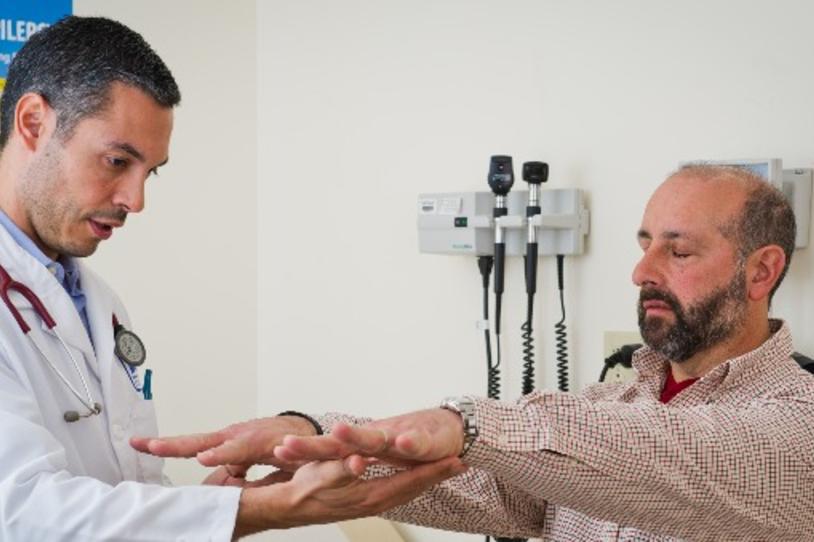
A movement disorder specialist performing a clinical examination.
You may have Parkinson’s disease (PD) but it does not have you. A person with Parkinson’s has the power to build a unique care team, evaluate treatment options and reach out to community support. People with PD can and should play an active role in and make informed decisions about their care.
Doctors can help people with Parkinson’s by educating them on the disease, discussing care recommendations and increasing their awareness of resources and clinical trials. They can also encourage patients to ask questions and closely observe their own symptoms so that they can work with doctors to craft an individualized treatment plan.
Movement disorder specialists — neurologists with expertise in Parkinson’s disease — are well positioned for this role because of the high number of people with PD they see regularly. When this type of physician is part of the care team, people report feeling more informed about their disease, available support and clinical research. Despite this, only about a quarter of all people with Parkinson’s visit a movement disorder specialist.
These results stem from a Harris Poll survey of 1,500 patients, caregivers, and doctors conducted earlier this year on behalf of The Michael J. Fox Foundation and AbbVie for the Partners in Parkinson’s initiative. James Leverenz, MD, of the Cleveland Clinic comments on this data in the October issue of Practical Neurology.
“By arming patients with the resources they need to make informed decisions about their own care, we can be true teammates on their roster of health care professionals,” says Dr. Leverenz. This roster should include doctors, allied health care workers (such as physical, occupational and speech therapists), care partners and — at the center — an empowered patient.
Primary care physicians and general neurologists are often the “gatekeepers” to this team. They can explain the benefits of seeing a specialist and make a referral. If they don’t, however, the patient can certainly start this conversation. This stresses the fact that communication — not only between people with PD and their physicians but also among the team of health care providers — is essential to getting the best care.
Clinicians are asking people with PD to become their “Partner in Parkinson’s,” but they have to equip them with the knowledge and resources to do so. We have to work together to construct a team unified around one person with the goal of improving quality of life and easing symptoms.
See more results from the survey in our infographic and find more resources for building a care team on the Partners in Parkinson’s website.
